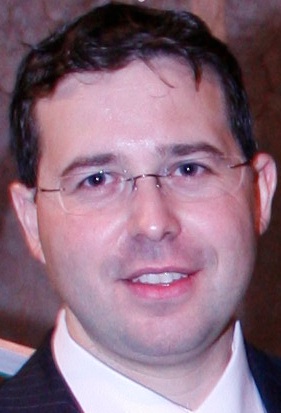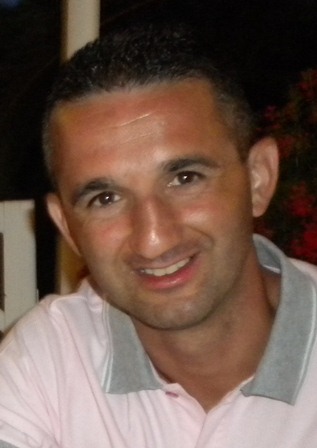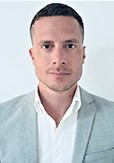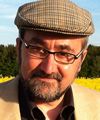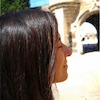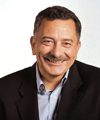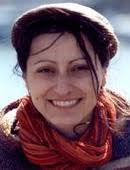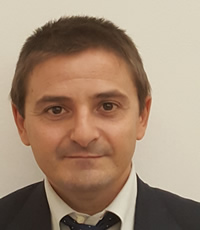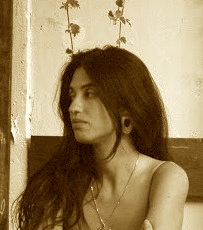Studying at the University of Verona
Here you can find information on the organisational aspects of the Programme, lecture timetables, learning activities and useful contact details for your time at the University, from enrolment to graduation.
Academic calendar
The academic calendar shows the deadlines and scheduled events that are relevant to students, teaching and technical-administrative staff of the University. Public holidays and University closures are also indicated. The academic year normally begins on 1 October each year and ends on 30 September of the following year.
Course calendar
The Academic Calendar sets out the degree programme lecture and exam timetables, as well as the relevant university closure dates..
| Period | From | To |
|---|---|---|
| Sem 1A | Sep 23, 2019 | Oct 31, 2019 |
| Sem 1B | Nov 11, 2019 | Jan 11, 2020 |
| Sem 2A | Feb 17, 2020 | Mar 28, 2020 |
| Sem 2B | Apr 6, 2020 | May 30, 2020 |
| Session | From | To |
|---|---|---|
| Sessione d'esame invernale | Jan 13, 2020 | Feb 15, 2020 |
| Sessione d'esame estiva (gli esami sono sospesi durante la sessione di laurea) | Jun 3, 2020 | Jul 25, 2020 |
| Sessione d'esame autunnale | Aug 24, 2020 | Sep 19, 2020 |
| Session | From | To |
|---|---|---|
| Sessione di laurea estiva | Jul 6, 2020 | Jul 11, 2020 |
| Sessione di laurea autunnale 19-20 | Nov 2, 2020 | Nov 7, 2020 |
| Period | From | To |
|---|---|---|
| Festa di Ognissanti | Nov 1, 2019 | Nov 1, 2019 |
| Sospensione delle lezioni | Nov 2, 2019 | Nov 2, 2019 |
| Festa dell'Immacolata | Dec 8, 2019 | Dec 8, 2019 |
| Vacanze di Natale | Dec 23, 2019 | Jan 6, 2020 |
| Vacanze di Pasqua | Apr 10, 2020 | Apr 14, 2020 |
| Festa della Liberazione | Apr 25, 2020 | Apr 25, 2020 |
| Festa del lavoro | May 1, 2020 | May 1, 2020 |
| Sospensione delle lezioni | May 2, 2020 | May 2, 2020 |
| Festa del Santo Patrono | May 21, 2020 | May 21, 2020 |
| Sospensione delle lezioni | May 22, 2020 | May 23, 2020 |
| Festa della Repubblica | Jun 2, 2020 | Jun 2, 2020 |
| Vacanze estive | Aug 10, 2020 | Aug 15, 2020 |
Exam calendar
Exam dates and rounds are managed by the relevant Culture and Civilisation Teaching and Student Services Unit.
To view all the exam sessions available, please use the Exam dashboard on ESSE3.
If you forgot your login details or have problems logging in, please contact the relevant IT HelpDesk, or check the login details recovery web page.
Should you have any doubts or questions, please check the Enrollment FAQs
Academic staff
 maurizio.boscaini@univr.it
maurizio.boscaini@univr.it
 paolamaria.caleffi@univr.it
paolamaria.caleffi@univr.it
 andrea.capuzzo@univr.it
andrea.capuzzo@univr.it
 marco.carradore@univr.it
marco.carradore@univr.it
 paolodalben@tin.it
paolodalben@tin.it
 mila.dallapreda@univr.it
mila.dallapreda@univr.it
 marta.fraizzoli@univr.it
marta.fraizzoli@univr.it
 maxclaudiogallo@gmail.com
maxclaudiogallo@gmail.com
 veronica.gobbato@univr.it
veronica.gobbato@univr.it
 gerardo.ienna@univr.it
gerardo.ienna@univr.it
 marco.menato@univr.it
marco.menato@univr.it

Migliorati Lorenzo
 lorenzo.migliorati@univr.it
lorenzo.migliorati@univr.it
 045802 8135
045802 8135
 giulia.pedrucci@univr.it
giulia.pedrucci@univr.it
 alberto.scandola@univr.it
alberto.scandola@univr.it
 sorayaelizabeth.shamloo@univr.it
sorayaelizabeth.shamloo@univr.it
Tani Stefano
 stefano.tani@univr.it
stefano.tani@univr.it
 +39 045802 8110
+39 045802 8110
Study Plan
The Study Plan includes all modules, teaching and learning activities that each student will need to undertake during their time at the University.
Please select your Study Plan based on your enrollment year.
1° Year
| Modules | Credits | TAF | SSD |
|---|
2° Year activated in the A.Y. 2020/2021
| Modules | Credits | TAF | SSD |
|---|
1 module to be chosen among the following3° Year activated in the A.Y. 2021/2022
| Modules | Credits | TAF | SSD |
|---|
2 modules to be chosen among the following| Modules | Credits | TAF | SSD |
|---|
| Modules | Credits | TAF | SSD |
|---|
1 module to be chosen among the following| Modules | Credits | TAF | SSD |
|---|
2 modules to be chosen among the following| Modules | Credits | TAF | SSD |
|---|
Legend | Type of training activity (TTA)
TAF (Type of Educational Activity) All courses and activities are classified into different types of educational activities, indicated by a letter.
Language and Communication (2019/2020)
Teaching code
4S008042
Teacher
Coordinator
Credits
6
Language
Italian
Scientific Disciplinary Sector (SSD)
L-LIN/01 - HISTORICAL AND GENERAL LINGUISTICS
Period
Sem 1A, Sem 1B
Learning outcomes
This course aims at providing a first introduction to linguistics as a cognitive science, by presenting and exploring the various converging perspectives that conspire to constitute a science of language: language as an historical and cultural entity, as a communication system and as a computational system involving the interaction of a series of distinct cognitive modules.
At the end of the course, the participant should be able to find her way in the rich tradition of studies on natural language, and capable of reading in autonomy some of the canonical literature. In a nutshell, the objective is introducing the students of the course of study in Communication Sciences to the scientific discourse around human language.
Program
This course provides an introduction to the study of natural language, conceived of as a cognitive system endowed with specific features and specifically used for communication purposes as well as an instrument for the expression of thought.
More particularly, the course involves a presentation of the core concepts for an analysis of the physical properties and of the mental representations associated with linguistic sounds (phonetics and phonology), of the rules of word-formation and sentence structure (morphosyntax), of sentence meaning in isolation and in context (semantics and pragmatics).
Some of the core properties of human language will be discussed from a broad cognitive and semiotic perspective, by devoting a specific attention to the relationship between human language and the other cognitive systems as well as to the differences between natural language and the other biological and artificial communication systems.
| Author | Title | Publishing house | Year | ISBN | Notes |
|---|---|---|---|---|---|
| Benedetta Baldi e Leonardo M. Savoia | Linguaggio e comunicazione. Introduzione alla linguistica | Zanichelli | 2017 |
Examination Methods
Written exam at the end of the course.
The exam will consist in about ten questions (almost all of them open questions), which are aimed at checking the knowledge and competences acquired by the participants, as well as their skills of synthesis and of independent judgment in the application of some of these competences.
ATTENTION PLEASE! Given the situation stemming from the present Coronavirus emergency, the exam modality indicated above will be replaced, limited to the next summer session, by an ORAL EXAM, to be held via computer-supported electronic means, according to the indications of the course responsible (Zoom, Teams, Skype, etc.).
Type D and Type F activities
| years | Modules | TAF | Teacher |
|---|---|---|---|
| 1° 2° 3° | Lectures "Musiche/Culture/Civiltà" | F |
Vincenzo Borghetti
(Coordinator)
|
| 1° 2° 3° | Laboratory of Theatrical Criticism | F |
Simona Brunetti
(Coordinator)
|
| 1° 2° 3° | Worshop for cultral events | F | Not yet assigned |
| years | Modules | TAF | Teacher |
|---|---|---|---|
| 1° 2° 3° | 1969 – 2019; a cinquant’anni dalla strage di piazza fontana | F |
Renato Camurri
(Coordinator)
|
| 1° 2° 3° | Lectures "Musiche/Culture/Civiltà" | F |
Vincenzo Borghetti
(Coordinator)
|
| 1° 2° 3° | Laboratory of Theatrical Criticism | F |
Simona Brunetti
(Coordinator)
|
| 1° 2° 3° | Worshop for cultral events | F | Not yet assigned |
| years | Modules | TAF | Teacher |
|---|---|---|---|
| 1° 2° 3° | Marchants of Culture. Editorial distribution and promotion | F |
Federica Formiga
(Coordinator)
|
| 1° 2° 3° | Data elaboration laboratory | F |
Maurizio Boscaini
(Coordinator)
|
| 1° 2° 3° | Laboratory of radio languages | F |
Simona Brunetti
(Coordinator)
|
| 1° 2° 3° | Worshop for cultral events | F | Not yet assigned |
| 1° 2° 3° | The Role of Psychology in Human Resources: Professional interview | F |
Riccardo Sartori
(Coordinator)
|
| 1° 2° 3° | Psychology and communication: Innovation and creativity processes in the workplace | F |
Riccardo Sartori
(Coordinator)
|
| 1° 2° 3° | Sociology of Communication | F |
Lorenzo Migliorati
(Coordinator)
|
| 1° 2° 3° | Sociology of Mass Communication (p) | F |
Lorenzo Migliorati
(Coordinator)
|
| 1° 2° 3° | History of comics | F |
Claudio Gallo
(Coordinator)
|
| years | Modules | TAF | Teacher |
|---|---|---|---|
| 1° 2° 3° | Data elaboration laboratory | F |
Maurizio Boscaini
(Coordinator)
|
| 1° 2° 3° | Laboratory of radio languages | F |
Simona Brunetti
(Coordinator)
|
| 1° 2° 3° | Worshop for cultral events | F | Not yet assigned |
| 1° 2° 3° | Creative Writing Laboratory | F |
Veronica Gobbato
(Coordinator)
|
| 1° 2° 3° | Journalistic Writing Laboratory | F |
Andrea Capuzzo
(Coordinator)
|
| 1° 2° 3° | The Role of Psychology in Human Resources: Professional interview | F |
Riccardo Sartori
(Coordinator)
|
| 1° 2° 3° | Psychology and communication: Innovation and creativity processes in the workplace | F |
Riccardo Sartori
(Coordinator)
|
| 1° 2° 3° | Sociology of Communication | F |
Lorenzo Migliorati
(Coordinator)
|
| 1° 2° 3° | Sociology of Mass Communication (p) | F |
Lorenzo Migliorati
(Coordinator)
|
| 1° 2° 3° | History of comics | F |
Claudio Gallo
(Coordinator)
|
| years | Modules | TAF | Teacher |
|---|---|---|---|
| 1° 2° 3° | "Common world. 2022 Arendt Seminars | F |
Olivia Guaraldo
(Coordinator)
|
| 1° 2° 3° | Theatre with wheels | F |
Simona Brunetti
(Coordinator)
|
| 1° 2° 3° | Theatre with wheels - conferences | F |
Simona Brunetti
(Coordinator)
|
| 1° 2° 3° | Univero’ 2019 | F |
Tiziana Franco
(Coordinator)
|
Career prospects
Module/Programme news
News for students
There you will find information, resources and services useful during your time at the University (Student’s exam record, your study plan on ESSE3, Distance Learning courses, university email account, office forms, administrative procedures, etc.). You can log into MyUnivr with your GIA login details: only in this way will you be able to receive notification of all the notices from your teachers and your secretariat via email and soon also via the Univr app.
Graduation
Documents
| Title | Info File |
|---|---|
|
|
pdf, it, 263 KB, 09/02/22 |
List of theses and work experience proposals
| theses proposals | Research area |
|---|---|
| Laureandi Scienze della Comunicazione: vademecum | Various topics |
| Stage | Research area |
|---|---|
| L'iter del libro in biblioteca | Various topics |
| Proposte stages - Centro di ricerca Skenè | Various topics |







